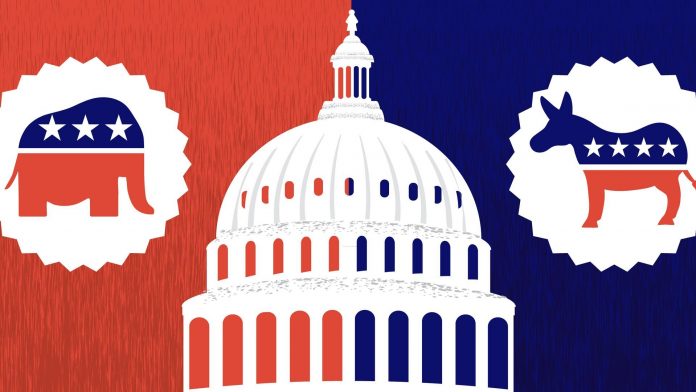The Supreme Court agreed to hear a challenge to a campaign finance law that limits coordination between candidates, their campaigns and party committees. If the court throws out the current limits, it would overturn a precedent that was set 24 years ago.
The plaintiffs in the case, the Republican committees for both the House and Senate, say the limits on coordinated spending inhibit their free speech and should be done away with. If overturned, candidates and the party committees could together spend unlimited sums on advertising campaigns and other campaign-related expenses.
Challenging coordinated expenditures
The lawsuit challenges the “coordinated party expenditure limits” created by the Federal Election Campaign Act of 1971. Both the Democratic and Republican parties at the federal and state levels have committees that raise and spend money on behalf of their candidates. The law sets limits on how much those committees can both raise from donors and give to candidates.
The limitations are based on the office the candidate is seeking, the population of the state they are running in, and inflation. For instance, the Federal Election Commission says for 2025, limits for Senate candidates range from $127,200 to $3,946,100, depending on the state’s voting-age population.
A precedent set 24 years ago
The case was originally filed in 2022 by then-Sen. JD Vance, R-Ohio, and Rep. Steve Chabot, R-Ohio. An appeals court ruled against them, stating it was bound by the 2001 Supreme Court decision in FEC v. Colorado Republican Federal Campaign Committee.
In that decision, the court ruled that limits on coordinated expenditures are constitutional. The court reasoned that the limits on coordinated spending will minimize big donors trying to get around individual contribution limits. The court also said there is no limit on independent expenditures by committees or those made without coordination or cooperation.
Open Secrets, a nonpartisan organization that tracks money in politics, expressed concern that a ruling in the plaintiffs’ favor could open the door to even more money entering politics.
Democrats argued the Supreme Court should have denied the petition to take up the case.
“The First Amendment has not changed since 2001, the anti-circumvention and corruption concerns justifying the statute remain the same,” the Democratic National Committee wrote in a court filing.
‘More expensive, less effective’
The plaintiffs are now arguing that the court should eliminate the limits, contending that all the steps committees take to avoid coordination and comply with the law make their giving more expensive and less effective.
“The limits therefore impede party committees’ ability ‘to unify their political message’ with their candidates, ‘increase their costs, create redundancies, and discourage them from communicating effectively with their candidates and spending money efficiently to support them,’” attorneys for the plaintiffs wrote in their briefs.
The solicitor general bows out
In May, Solicitor General D. John Sauer informed the court that his office would not defend the law, despite the office’s longstanding policy to back federal statutes in lawsuits. In a letter to House Speaker Mike Johnson, R-La., Sauer said he believes the law violates political parties’ and candidates’ First Amendment rights.
He also cited recent Supreme Court precedent, which indicates the justices are more prone to get rid of limits to contributions, citing free speech concerns.
The most notable case is Citizens United v. FEC, the 2010 decision in which the court struck down the ban on corporate independent expenditures. The 5-4 decision stated that expenditures are a form of speech, and therefore, they could only be prohibited to stop bribery or corruption.
Since the solicitor general won’t defend the law, the Democratic National Committee requested and was granted permission by the court to join the case and argue in favor of keeping the limits. In a filing, the DNC stated that treating coordinated contributions as de facto campaign contributions makes “good sense.”
The case could be heard as early as this fall, and a decision would be released in the first half of 2026.

